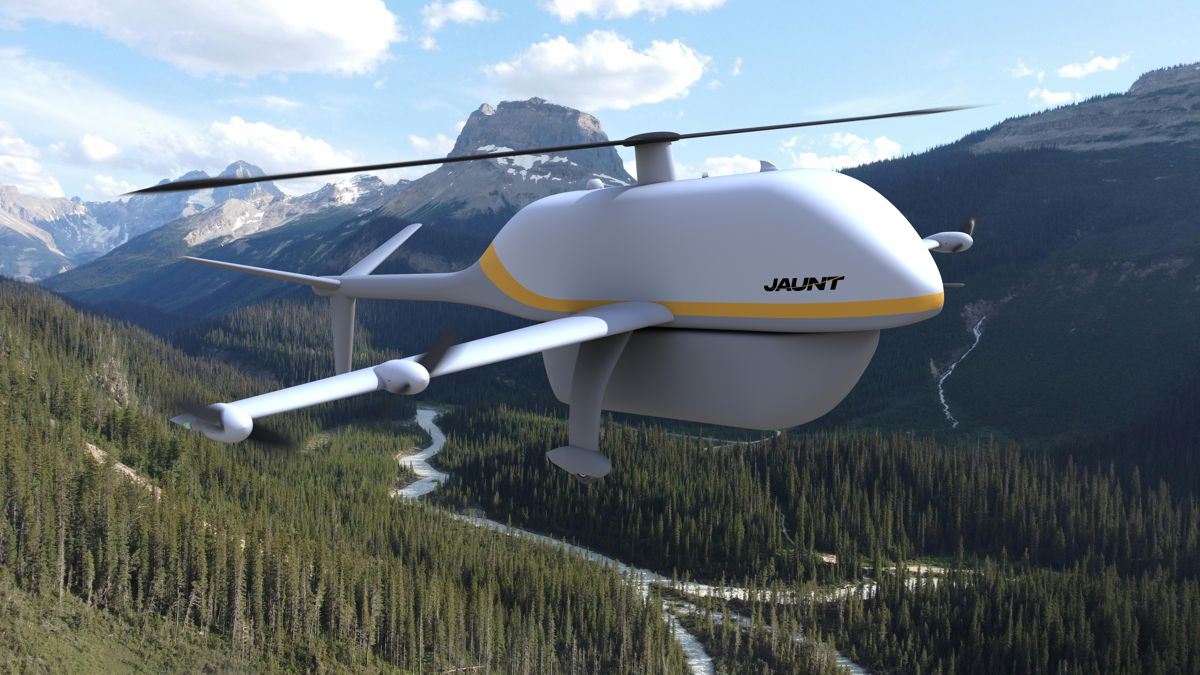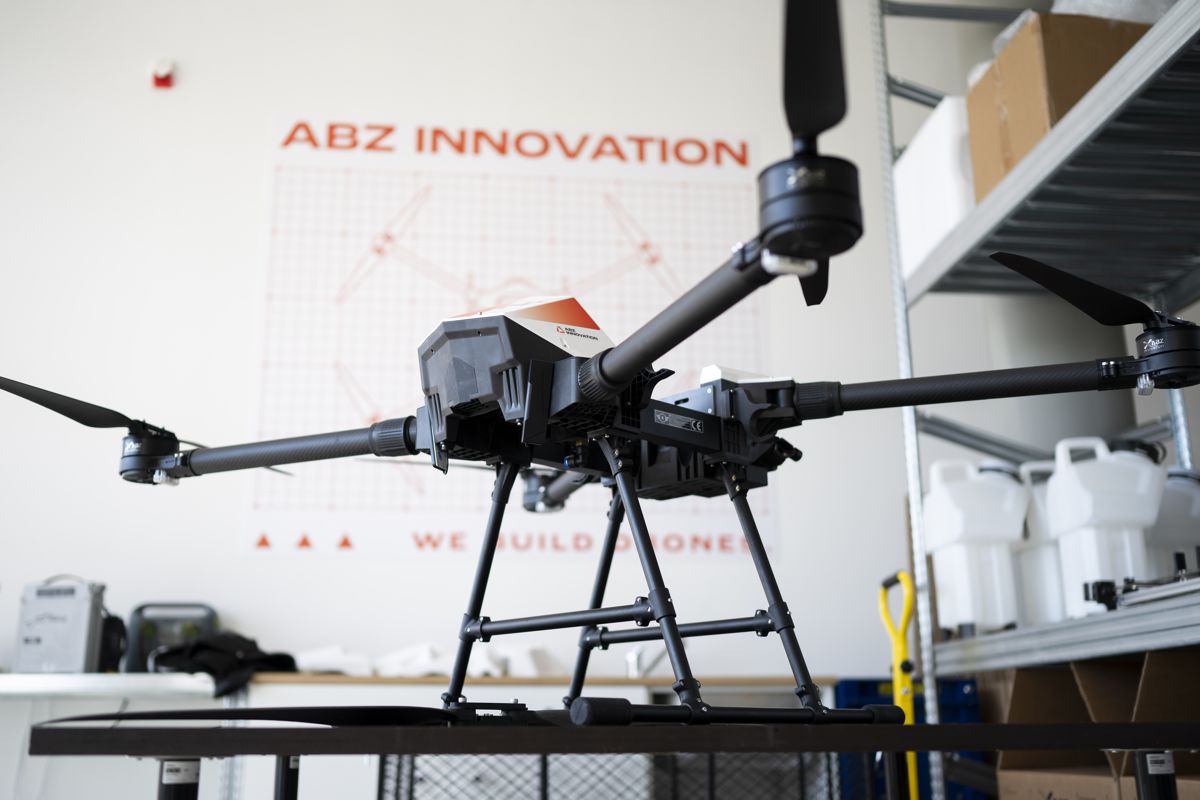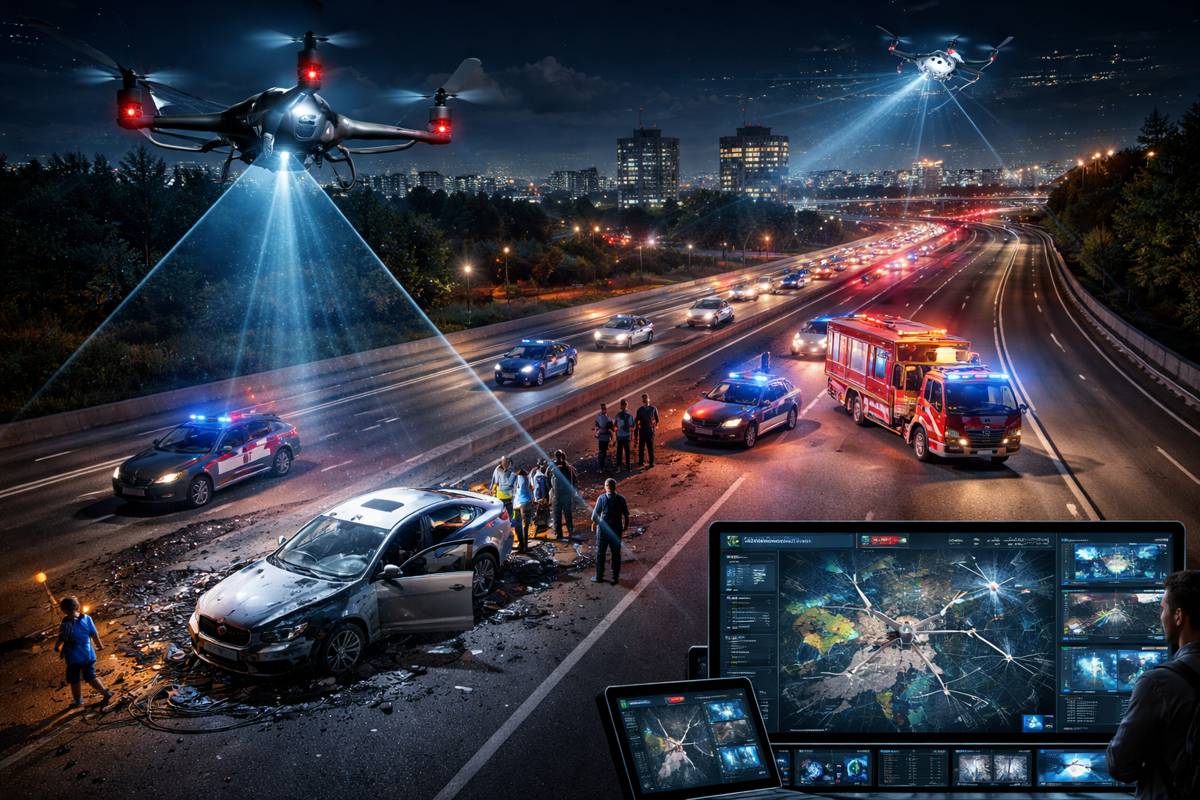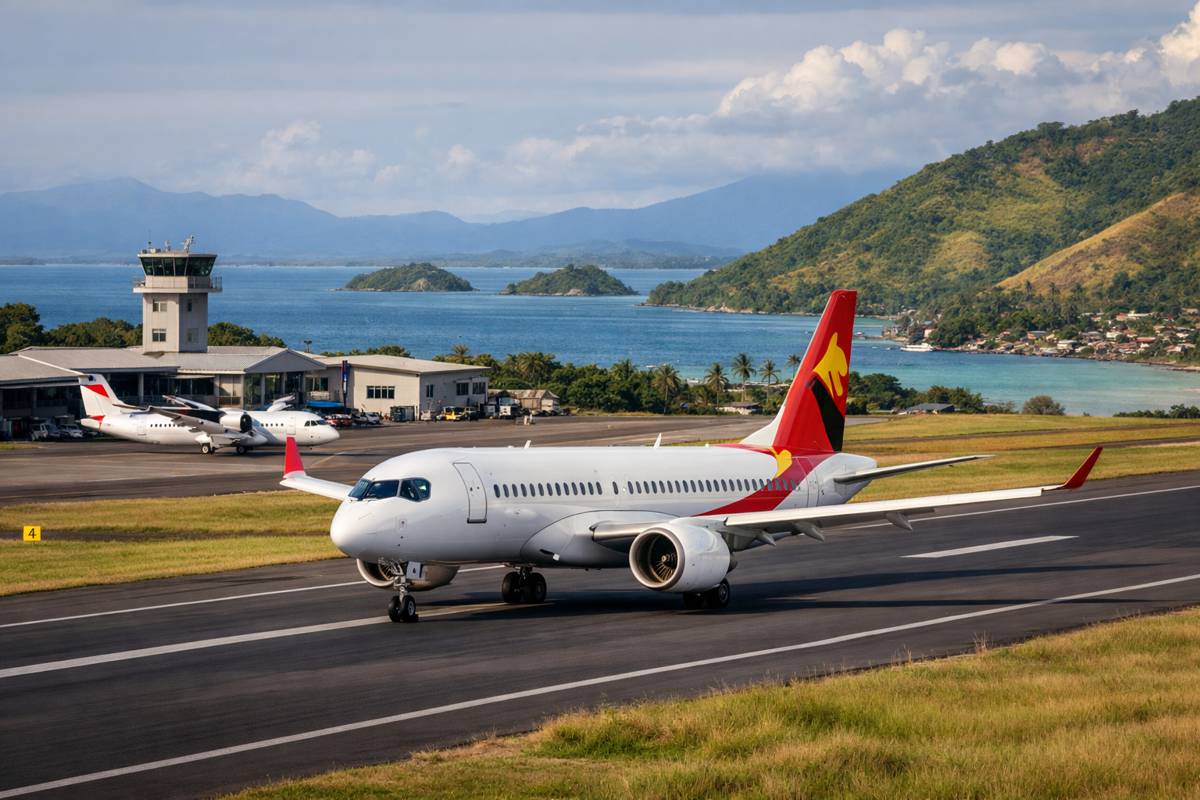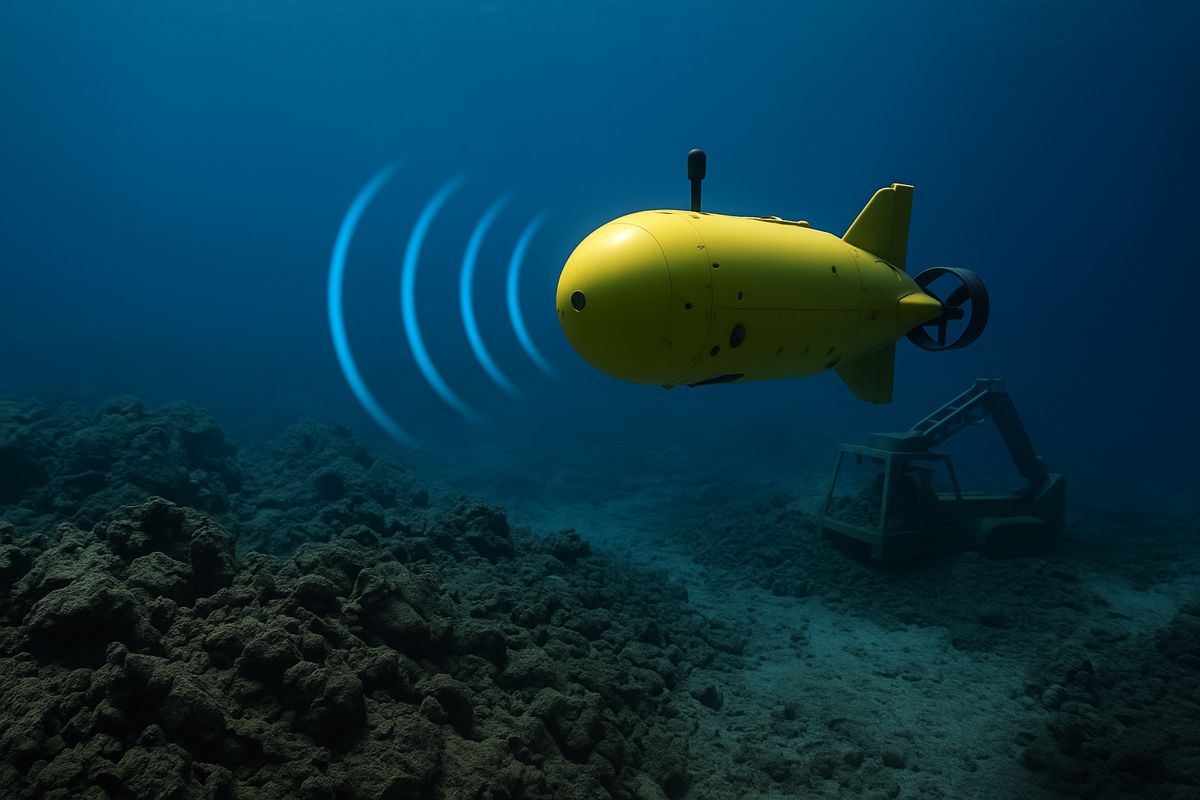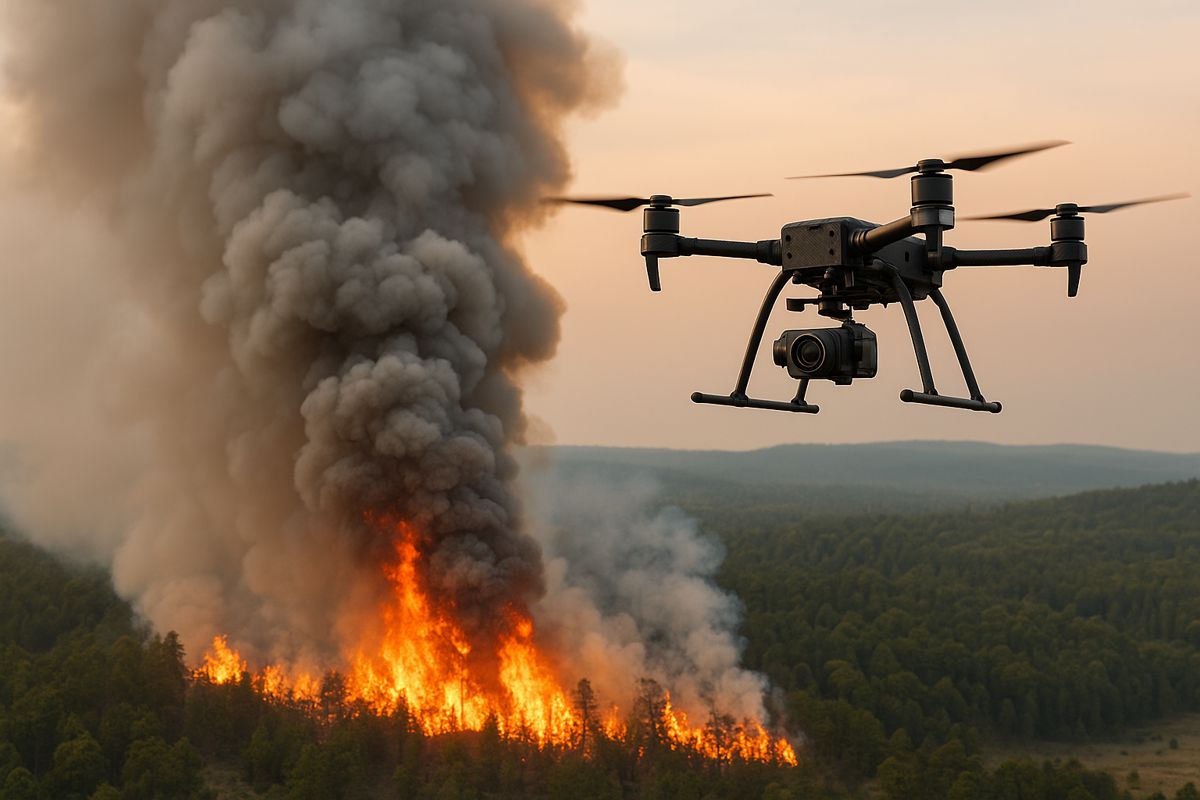Redefining the Middle Mile with the AIRO Cargo Drone
At the 2025 EAA AirVenture show in Oshkosh, Wisconsin, AIRO made a bold move that’s turning heads across aerospace and logistics sectors alike. The company unveiled its all-new, medium-lift cargo drone, purpose-built for the middle-mile segment of logistics. But it wasn’t just about debuting a sleek new aircraft. AIRO also announced its expansion into the YMX Innovation Zone in Mirabel, Quebec—a strategic leap into one of the most forward-thinking aerospace ecosystems in the world.
Helmed by Jaunt Air Mobility, the Electric Air Mobility arm of AIRO, the new platform aims to revolutionise how cargo gets from point A to point B across rural and urban corridors. And the implications stretch far beyond the runway.
What Makes Middle-Mile Matter?
The so-called “middle mile” of freight transport—that bit between the distribution centre and local depots—has long relied on trucks and vans. But this mode is riddled with inefficiencies: road congestion, high emissions, and slower transit times, especially in remote or logistically complex areas.
AIRO’s answer? A next-gen, vertical takeoff drone with the endurance and payload capacity to shake up the equation.
The new aircraft is engineered to carry between 250 and 500 pounds across distances of over 200 miles. That sweet spot, often too short for cargo planes but too long and costly for ground fleets, is where this drone is designed to thrive. By replacing box trucks and rigid delivery schedules with aerial agility, AIRO is offering a cleaner, faster and, crucially, more scalable solution.
Technology That Soars Beyond Expectations
At the heart of the drone lies Jaunt’s proprietary Slowed-Rotor Compound (SRC) technology. Blending the vertical lift of a helicopter with the cruise performance of a fixed-wing aircraft, this hybrid design helps to maximise efficiency without sacrificing stability or control.
But the innovation doesn’t stop there. The aircraft is also being developed with robust Command & Control (C2) capabilities to support beyond visual line-of-sight (BVLOS) operations. Dual-redundant communication channels over both satellite and cellular networks ensure continuous data links, even in remote regions or complex airspaces.
Supporting the drone is a modular Ground Control System (GCS) that enables:
- Real-time flight tracking and telemetry
- Secure communication and mission oversight
- Multi-aircraft operations with seamless transition across control stations
This isn’t just about flying smarter—it’s about managing entire networks of autonomous or semi-autonomous aerial vehicles from the ground up.
A Mission with Purpose
AIRO isn’t chasing hype. It’s addressing real-world problems. That much is evident in its ongoing collaboration with Vertiko Mobilité, a Canadian leader in AAM infrastructure and logistics. Together, they piloted the CORRIDAIR Project, which used drone technology to deliver fuel and critical medical supplies to First Nation communities in rural Quebec.
Martin Peryea, SVP & GM of Electric Air Mobility at AIRO, put it simply: “Our work on the CORRIDAIR Project demonstrated the transformative potential of this technology, especially for First Nation communities in rural Quebec, where access to critical medical supplies and fuel is limited.”
With that success under their belt, AIRO’s move into YMX isn’t just a business decision. It’s a commitment to expanding access, improving resilience, and reimagining what logistics can look like for underserved communities.
Why YMX Innovation Zone Matters
Quebec’s YMX Innovation Zone isn’t just another tech park. It’s a collaborative, multi-stakeholder hub for Advanced Air Mobility. Combining academia, industry, and regulatory bodies, YMX offers a rare blend of resources to accelerate:
- Design validation and certification
- Field testing and flight trials
- Commercialisation and scale-up
Captain Joe Burns, CEO of AIRO, summed it up: “As we progress toward Transport Canada certification and scale manufacturing in Montreal, this cargo drone represents a strategic milestone to deliver advanced air mobility solutions to customers sooner.”
The Montreal corridor, already rich with aerospace expertise, gives AIRO a direct line to Canadian and international regulatory bodies. That means quicker turnarounds on approvals, more meaningful testing feedback, and a faster path from prototype to deployment.
Building an Interoperable Ecosystem
Unlike many aerospace startups chasing a single vertical, AIRO is building a broader platform that integrates cargo, surveillance, training, and passenger mobility. Its drone technology isn’t designed in isolation but in tandem with its eVTOL (electric vertical takeoff and landing) platforms.
Dr. Chirinjeev Kathuria, Executive Chairman of AIRO, explained: “By leveraging the synergies between our drone and eVTOL platforms, we’re creating a scalable, interoperable ecosystem that addresses both cargo and passenger needs.”
The broader goal? A multi-role system where components, software, and infrastructure share a common architecture. This vision allows AIRO to adapt quickly as customer needs evolve—whether that means transporting goods today or people tomorrow.
Competitive Landscape and Future Outlook
AIRO isn’t alone in the middle-mile race. Rivals like Elroy Air, Pipistrel, and MightyFly are also pushing autonomous cargo platforms. What sets AIRO apart is its integration of hybrid rotor-wing technology and its deep regulatory alignment through Canadian partnerships.
Moreover, the YMX zone provides a competitive advantage that few others can claim: direct access to a ready-made sandbox for testing, validating, and certifying new tech.
With AIRO’s drone platform poised for launch, the industry is watching closely. As climate targets tighten and supply chains grow more complex, scalable aerial freight could soon be more necessity than novelty.
A New Horizon for Logistics
The announcement at Oshkosh wasn’t just another product reveal. It marked a turning point for how cargo will be moved in the not-so-distant future. Between its strategic Quebec hub, purpose-built aircraft, and commitment to real-world deployment, AIRO is lighting a new path forward for Advanced Air Mobility.
In a world where time is money, and sustainability is no longer optional, solutions like AIRO’s cargo drone might just prove to be the missing link in the logistics chain.
